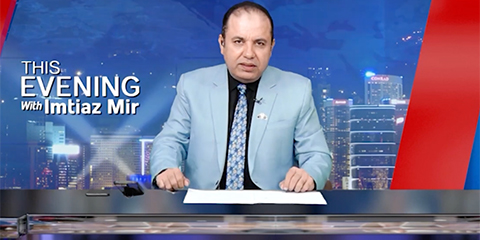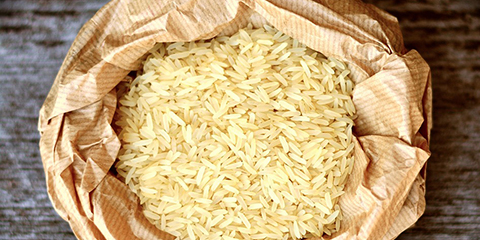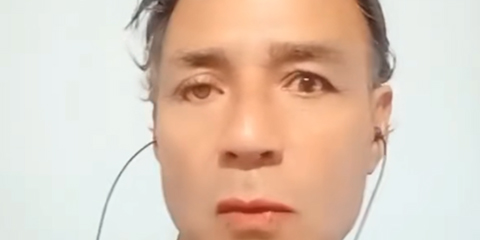
PFUJ recalls November 3, 2007 emergency as Pakistan’s darkest day
November 03, 2025: PFUJ recalls November 3, 2007, as Pakistan’s darkest day under Musharraf, urging protection for journalists and the abolition of laws threatening press freedom.
JournalismPakistan.com | Published last year
Join our WhatsApp channel
NEPAL—Chairperson and publisher of the Kantipur Media Group, Kailash Sirohiya, was arrested on May 21, nominally over issues with his citizenship documents, with many in Nepal’s media community identifying the arrest as related to coverage of Home Minister Rabi Lamichhane. The International Federation of Journalists (IFJ) and its affiliates, the Nepal Press Union (NPU) and the Federation of Nepali Journalists (FNJ), condemn the arrest and urge authorities to uphold press freedom.
On the evening of May 21, police entered the Kathmandu offices of the Kantipur Media Group and arrested its Chairman, Kailash Sirohiya. The arrest came following the issuing of an arrest warrant earlier that day by the Dhanusha District Court, after a case was filed with Dhanusha police claiming Sirohiya’s citizenship card held the same identifying number as another individual’s.
Sirohiya is under judicial custody in Dhanusha in the southern Madhesh province, with his detention extended by Judge Churaman Khadka for three more days on May 22. Sirohiya has denied all claims and has claimed the arrest was an “act of vengeance” for Kantipur’s reporting on Home Minister Rabi Lamichhane. In a statement, the FNJ alleges that the arrest’s timing confirmed it as vindictive.
The Chairman’s arrest comes following a series of reports detailing allegations that Lamichhane had misappropriated millions of Nepali Rupees in savings at a cooperative fund. At the same time, he was the managing director of the Gorkha Media Network.
Media unions, press freedom advocates, and journalist’s organisations have condemned the arrest, and called for Sirohiya’s immediate release. On May 23, 31 editors of leading publications wrote to Prime Minister Pushpa Kamal Dahal, raising their concerns over the manner and timing of his arrest, and stating their commitments to fighting for press freedom. Supporters also held a protest outside the Dhanusha District Police Office.
The NPU said: “The NPU strongly condemns the arrest of Kantipur Chairman Sirohiya from the working room by police on the instructions of Deputy Prime Minister and Home Minister Rabi Lamichhane, following the continuous investigative news published in the Kantipur daily about cooperative fraud. Although police say that the arrest was made due to a dual citizenship issue, the Union assumes that Sirohiya was arrested on Mr. Lamichhane's instructions, intending to suppress the freedoms of the press and expression by abusing his power and authority.”
The FNJ said: “Although it has always stood by the investigation conducted according to the law, the Federation of Journalists does not accept the abuse of state power with the intention of restricting the freedom of press and expression. The Federation is with the editorial leadership of Kantipur to move forward without being influenced by this incident and without being distracted from the work of publishing truthful news. Respecting the freedom of the press and expression, the Federation strongly demands the government to comply with the guarantee of full freedom of the press ensured by the Constitution of Nepal.”
The IFJ said: “The arrest of Kailash Sirohiya is deeply concerning, especially considering the ongoing investigative work focused on allegations of misconduct by the Home Minister. Investigations against journalists and media personnel cannot be informed by personal or political reasons, and authorities must ensure that Nepal’s commitment to press freedom are upheld.” - An IFJ Media Release

November 03, 2025: PFUJ recalls November 3, 2007, as Pakistan’s darkest day under Musharraf, urging protection for journalists and the abolition of laws threatening press freedom.

November 02, 2025: PFUJ urges Pakistan’s federal and provincial governments to end Impunity for Crimes Against Journalists and ensure their safety and press freedom.

November 02, 2025: Impunity for crimes against journalists deepens worldwide as Pakistan reports a 60 percent surge in attacks and weak enforcement of safety laws.

November 01, 2025: Pakistan Press Foundation reports 137 attacks on journalists in 2025, highlighting rising threats, legal harassment, and censorship on the International Day to End Impunity.

November 01, 2025: A viral Samaa TV clip featuring MNA Sher Afzal Marwat’s crude remarks and Talat Hussain’s laughter raises questions about the declining ethics of Pakistani television.

October 31, 2025: Police foiled a plot to kill DawnNewsTV journalist Tahir Naseer in Rawalpindi after arresting suspects hired for Rs200,000. Naseer says threats followed his reporting.

October 31, 2025: CPJ calls on Pakistan to bring Imtiaz Mir’s killers to justice after the journalist was allegedly murdered by a banned militant group in Karachi.

October 30, 2025: The PFUJ has condemned a fabricated drug case against journalist Matiullah Jan, calling it an attempt to silence him and urging authorities to quash the charges immediately.

November 03, 2025 Global journalist unions condemn the Indonesian agriculture minister’s lawsuit against Tempo, calling it a threat to press freedom and demanding that the case be withdrawn.

November 02, 2025 Independent outlet All About Macau to halt print and online operations amid rising pressure, financial strain, and legal threats, sparking press freedom concerns in the city.

November 01, 2025 Belarus court jails journalist Siarhei Chabotska for extremism and defaming the president, highlighting Minsk’s ongoing crackdown on press freedom.

November 01, 2025 Mexican journalist Miguel Angel Beltran was found murdered in Durango. CPJ urges authorities to ensure justice amid rising violence against journalists in Mexico.

November 01, 2025 UNESCO survey finds one-third of media lawyers cannot effectively defend journalists due to threats, limited resources, and lack of specialization.